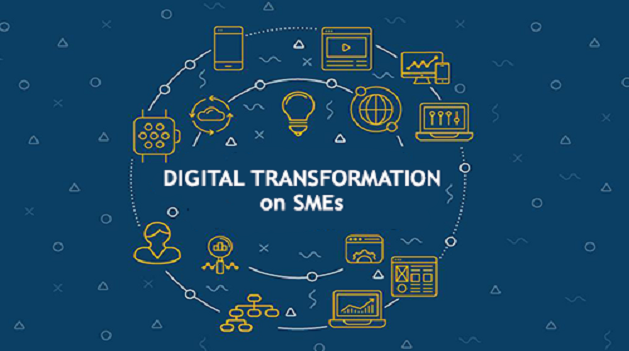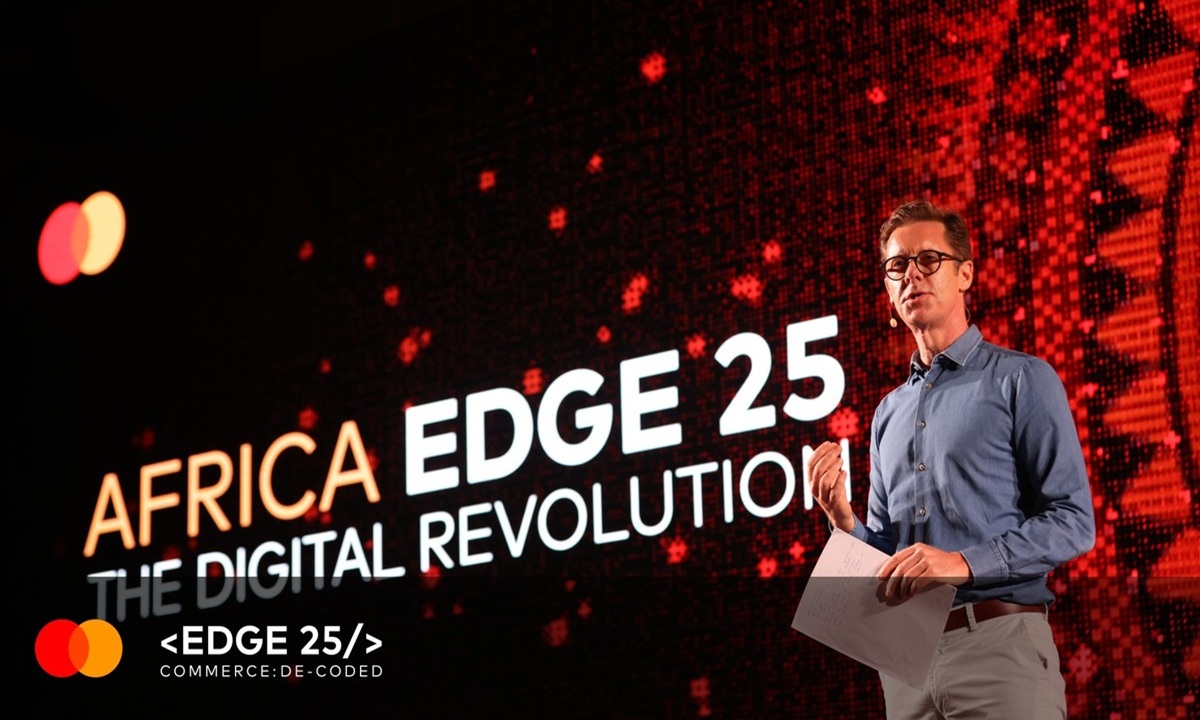E-Financial
CBN Issues Transitional Guidance, Says Banks are Healthy

Central Bank of Nigeria (CBN) has introduced time-bound measures for a small number of banks still completing their transition from the temporary regulatory support provided.

The CBN stated yesterday that this step is a response to the economic impact of the COVID-19 pandemic.
This step, the CBN said, is part of its broader, sequenced strategy to implement the recapitalisation programme announced in 2023.
CBN disclosed that the programme, which aligns with Nigeria’s long-term growth ambitions, has already led to significant capital inflows and balance sheet strengthening across the sector.
It said most banks have either completed or are on track to meet the new capital requirements well before the final implementation deadline of March 31, 2026.
It added that the measures announced apply only to a limited number of banks saying that these include temporary restrictions on capital distributions, such as dividends and bonuses, to support the retention of internally generated funds and bolster capital adequacy.
A statement by Mrs Hakama Sidi Ali, acting director, Corporate Communication of the apex bank, explained that all the affected banks have been formally notified and remain under close supervisory engagement.
“To support a smooth transition, the CBN has allowed limited, time-bound flexibility within the capital framework, consistent with international regulatory norms. Nigeria generally maintains Risk-Based Capital requirements that are significantly more stringent than the global Basel III minimums.
“These adjustments reflect a well-established supervisory process consistent with global norms. Regulators in the U.S., Europe, and other major markets have implemented similar transitional measures as part of post-crisis reform efforts,” the bank stated.
It further added that it remains fully committed to continuous engagement with stakeholders throughout this period via the Bankers’ Committee, the Body of Bank CEOs, and other industry forums.
The goal is to ensure a transparent, predictable, and collaborative regulatory environment.
It assured that Nigeria’s banking sector remains fundamentally strong, explaining that the new measures are neither unusual nor cause for concern; they are a continuation of the orderly and deliberate implementation of reforms already underway.
E-Financial
IFC Unveils $310M Investments to Support Smaller Businesses and Advance Job Creation

IFC has announced investments totaling $310 million in projects that will support the growth of smaller businesses and job creation across several African countries. The projects were announced at the Africa Financial Summit (AFIS), which convened private and public sector representatives from across Africa under the theme of mobilizing domestic capital at scale for development.

The two-day event, co-hosted by IFC, the Jeune Afrique Media Group, and the Kingdom of Morocco, featured discussions among African central bank governors, regulators, financial institutions, and fintech innovators on how Africa can best tap its own resources—and attract more foreign investment—to shape the continent’s financial future, create jobs, and sustainably grow its economies.
On the sidelines of AFIS, IFC announced partnerships with several financial institutions that will channel funds and support towards businesses in Egypt, Ethiopia, and Morocco, helping businesses grow and reach new markets.
The new projects IFC announced are:
- A $50 million financing package to Suez Canal Bank will expand lending to smaller businesses across Egypt, particularly in underserved regions. A quarter of the loan is earmarked for women-owned businesses to help bridge the gender financing gap and boost inclusive growth.
- A $10 million equivalent IFC local-currency risk-sharing facility with Attijariwafa Bank Egypt to expand access to finance for smaller businesses and support job creation. At least a quarter of the loans are earmarked for women-owned businesses, and half to SMEs in vulnerable communities. The initiative is supported by the Prospects Partnership, which supports development for host communities and forcibly displaced people.
- A $250 million IFC risk-sharing facility with newly established Saham Bank will strengthen Morocco’s financial stability and expand access to finance for local businesses. IFC will share up to 50 percent of the credit risk on the bank’s $500 million corporate loan portfolio, helping sustain lending to key sectors. Saham Bank recently acquired Société Générale Marocaine de Banques.
- An IFC advisory services support program for VisionFund to help the microfinancier expand lending to smaller businesses and deepen financial inclusion in Ethiopia. The project will strengthen VisionFund’s capacity in strategic business planning, risk management, and responsible finance, enabling it to reach more underserved entrepreneurs—especially women. This initiative follows IFC’s recent $10 million local currency loan to VisionFund.
Ethiopis Tafara, IFC’s Vice President for Africa, said, “The combination of Africa’s own financial resources with strategic international capital is a potent recipe for growth on the continent. Africa’s entrepreneurs are building companies that rival any in the world—and with the right support, they can grow and create the jobs and opportunities Africa needs. These projects underscore the power of partnerships as well as the important role of events like AFIS in bringing together like-minded organizations for development and impact.”
AFIS was established in 2021 to promote a shared understanding among public authorities and private sector leaders of the trends and risks shaping the continent’s financial industry. Through open dialogue and collaboration, AFIS helps identify opportunities for improvement, whether through regulatory reforms or market-driven initiatives.
This year’s event brought together more than 1,250 senior leaders from Africa’s financial sector—including those who manage Africa’s savings with those who can channel international investment—with the aim of delivering more funds to job-creating African businesses and projects.
Over the past two decades, IFC has collaborated with more than 300 financial institutions across 40 African countries to enhance banking systems, expand access to finance, and mobilize private capital. This partnership has helped build the foundations for opportunity—fueling enterprise, enabling jobs, and driving the continent’s next generation of growth.
E-Financial
Court Jails Asiegbu, Former Wema Bank’s Manager 3 Years for N8Bn Fraud

Justice Rahman Oshodi of the Lagos State Special Offences Court in Ikeja on Wednesday, convicted and sentenced Samuel Asiegbu, former financial and retail product manager with Wema Bank Nigeria Plc, to three years in prison for hacking and stealing N8.56 billion from the bank vault.

Justice Oshodi jailed Asiegbu, without the option of a fine, after pleading guilty to the eight-count charge of conspiracy, fraud and unauthorised access to a computer system.
The convict was accused by the Economic and Financial Crimes Commission (EFCC) alongside Hamza Zakaria, Nurudeen Ibrahim and Alhaji Sulaiman of manipulating the bank’s internal systems in January 2025 to cause a financial loss of over N8.5 billion.
The anti-graft agency informed the court on June 23, 2025, when the defendants were first arraigned, that the offences violate Sections 409 and 386 of the Criminal Law of Lagos State, 2011.
All the defendants had initially pleaded not guilty to the charge.
However, Asiegbu later changed his plea to guilty, leading to his conviction and sentencing.
Justice Oshodi sentenced the convict to 10 months and 8 days in prison for count three and 1 year and 8 months for count four, both sentences are to run concurrently and without an option of a fine.
The court subsequently struck out counts one and two.
The judge has fixed November 14 for the commencement of the trial of the remaining defendants.
E-Financial
Mastercard Champions Inclusive Growth Across the Continent @Africa Edge 2025

Mastercard held its inaugural Africa Edge summit, convening leaders from across Africa’s payments ecosystem to explore how collaboration and innovation can accelerate the continent’s digital growth.

Mark Elliott, division president, Africa, Mastercard at Africa Edge 2025.
The forum focused on building the infrastructure, trust and interoperability needed to support Africa’s fast-growing digital economy, projected to reach USD 1.5 trillion by 2030, and create new opportunities for consumers and small businesses.
Hosted by Mark Elliott, division president, Africa, Mastercard, the event brought together senior representatives from banks, fintech companies, telcos, regulators and technology partners.
Speakers and panelists discussed how to expand low-cost acceptance, improve interoperability and enhance security at scale to create a more inclusive and resilient economy.
With internet penetration in Africa projected to grow at 20 percent annually, participants agreed that seamless, secure and connected payment systems are essential to sustaining growth and unlocking new opportunities for trade and entrepreneurship.
During the event, Mastercard showcased two breakthrough innovations shaping the future of digital commerce. The first-ever Agent Pay transaction in EEMEA was executed live, marking a major step toward autonomous, secure and accessible payment experiences.
In addition, Mastercard launched the Merchant Cloud, a unified platform that brings together payments, AI and security to help merchants grow their businesses confidently in an omnichannel environment.
Both innovations underscore Mastercard’s commitment to building intelligent, inclusive and resilient payment ecosystems that power Africa’s digital transformation.
Mark Elliott, division president, Africa, Mastercard, said, “Africa Edge is a reflection of Mastercard’s long-term commitment to this continent.
“It is about collaboration and supporting partners across the ecosystem to deliver secure, seamless and accessible digital experiences that help people and businesses grow.
“Africa’s digital economy is scaling fast, and Mastercard is proud to be a trusted technology partner helping power that growth.”
Throughout the day, discussions highlighted the growing importance of payment immediacy and liquidity, with panelists noting how same-day settlement helps small businesses absorb shocks, reduce borrowing needs and reinvest faster.
South Africa’s real-time clearing system was cited as a model as Mastercard advances instant-payment capabilities across multiple African markets.
Ling Hai, president of APEMEA, Mastercard, further highlighted faster payments as critical to helping small businesses manage cash flow and grow.
He emphasized that Africa’s digital future depends on simple, safe and accessible payment solutions that work across markets and devices, calling for closer collaboration between the public and private sectors to ensure innovation benefits everyone.
Futurist John Sanei, the event’s keynote speaker, explored how human adaptability and emotional intelligence will define leadership success in an era of AI-driven change.
A spotlight session with Smile ID addressed the rising threat of synthetic identities and deepfakes, highlighting how Mastercard and Smile ID are combining AI-driven liveness checks and verification to strengthen digital onboarding and reduce fraud across African markets.
Folasade Femi-Lawal, country manager, West Africa, Mastercard, said: “West Africa is home to one of the world’s fastest-growing fintech sectors. Nigeria alone accounted for 28 percent of all African fintech companies in 2024, attracting nearly USD 400 million in investment.
“By combining global technology with local insight, we are helping banks, fintechs and innovators build open, trusted and scalable infrastructure.
“Our collaborations with governments, banks and fintech companies in the region are making digital payments simpler and safer for millions, proving that inclusion and innovation can move forward together.”
The event culminated in a celebratory awards ceremony and gala dinner, recognizing outstanding contributions from Mastercard’s partners and customers across Africa who are advancing innovation and inclusion in the digital economy.

 E-Business2 days ago
E-Business2 days agoMeta, NDPC Resolve $32.8m Privacy Dispute Out of Court

 E-Financial2 days ago
E-Financial2 days agoCBN Says High Bank Fees, Multiple Taxes Hamper Businesses

 E-Financial2 days ago
E-Financial2 days agoFirstBank, Verve Launch Flash Promo with Free Debit Cards Nationwide

 News2 days ago
News2 days agoUK’S Mobilist Facilitates Secondary Sale of Listed Shares in InfraCredit

 E-Financial2 days ago
E-Financial2 days agoNELFUND Student Loan Applications Surpass 1m in Under a Year

 General News2 days ago
General News2 days agoAI Should Be an Enabler, Not a Replacement for Human Creativity – Dr. Lakinbofa Goodluck

 Telecom2 days ago
Telecom2 days agoMTN Foundation’s Odunayo Sanya Champions Purposeful Leadership at Live2Lead Lagos

 General News2 days ago
General News2 days agoWorld Bank Fixes December to Approve Nigeria’s $1Bn DPF Loan
























